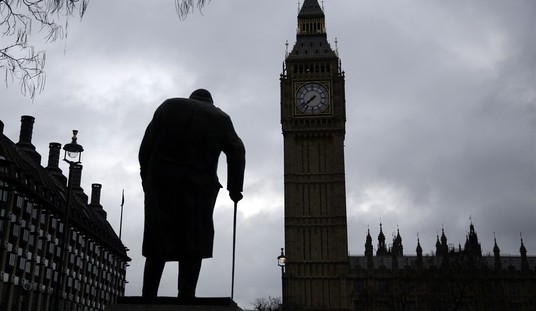The outbreak of Arab Spring in late 2010, coupled with the Obama administration’s rapid withdrawal from the Middle East replicated on a large scale what Democrats accused president George Bush of doing: destabilizing the existing regimes. But while Bush was held responsible for toppling Saddam Hussein, the subsequent events which rocked Egypt, Libya, Syria and provided an opening through which Iran extended its influence into Iraq and Lebanon, replicated instability on a region-wide scale.
With press attention focused on Egypt and Syria, Yemen was largely ignored by the media despite the fact that the administration regarded “al Qaeda in the Arabian Peninsula (AQAP) … the greatest direct threat to the United States”. Yet despite its importance, the sense that it was “all quiet on the Yemen front” prevailed because of the administration’s repeated claim that Yemen was its shining example of smart counterinsurgency.
As late as March of 2015, long after the recognized Yemeni government had been toppled and American advisers had been driven from the scene, Josh Earnest continued to insist “that Yemen did serve as a template for the kind of strategy that we would employ and have employed to mitigate the threat from extremists around the world.” But in fact, Yemen was disintegrating.
- The Arab Spring threw American counter-terrorism policy in Yemen into crisis. That policy had relied on the exchange of military, economic, and counter-terrorism assistance for cooperation from the Yemeni government in the fight against AQAP. When challenged by popular protest, the Saleh regime predictably focused its resources on protecting the Yemeni state rather than on pursuing al Qaeda, and the U.S. withheld assistance for fear that it would be used to oppress the Yemeni people.
- AQAP has exploited the ongoing instability in Yemen and established sanctuaries from Yemen’s border with Saudi Arabia to the southern coastline. A local militant group linked with AQAP has secured territory in the south and implemented shari’a rule in areas under its control.
After it disntegrated it actually got worse. Yemen became a battlefield between the two major contenders for Islamic supremacy, Saudi Arabia and Iran. Now it became a vortex pulling in superheated air from all the surrounds feeding the fires that were already burning within.
To review: We have Sunni and Shia (a Shia sect, to be sure, but nonetheless backed by Tehran) in the Yemeni capital. To the east, where the country’s main gas pipeline runs, rebel tribes are engaged in a campaign of sabotage to extort political and financial concessions from the central government. Further east, in the energy heartland, local grievances over money and governance have meant freedom of movement for AQAP. And finally, there’s the south, once independent, where secessionists are gaining ground again and…you got it…making room for AQAP.
In short, the trouble in Yemen is not simply sectarian woe in Sana’a, and the challenge for the United States is not merely in ensuring that we have a partner in the Yemeni capital. The trouble is with what President Barack Obama memorably labeled “the Yemen model.” At this point, it’s not just that the model itself — partnership with local government to defeat al Qaeda and associated movements — is in trouble; it’s that the entire nation of Yemen may well cease to exist as we know it. And doubling down on the notion that all that matters is the presidential palace in Sana’a is mindless.
John Kerry, perhaps disbelieving Josh Earnest’s assurances about templates, is desperately trying to glue the remaining pieces together again into some facsimile of a state. How far he will succeed remains to be seen.
US Secretary of State John Kerry says Yemen can avoid ending up a failed state.
Kerry says the verdict isn’t in yet, despite fighting in the center of the southern city of Aden and the UN’s warning of a humanitarian disaster.
Kerry says the US is working with the United Nations, Saudi Arabia and the United Arab Emirates to start peace negotiations between Yemen’s government and the Shiite rebels who’ve conquered much of the country.
Kerry says if that happens, Yemen “has the opportunity to hold itself together”.
However, Kerry’s efforts may have been overtaken by what appears to be a Saudi-sponsored ground intervention in Yemen. “(Reuters) – An Arab ground force arrived in the southern Yemeni city of Aden on Sunday and started fighting Houthi forces, Yemen’s Aden al-Ghad newspaper reported.” The troops are believed to be largely Egyptian, although Saudis may be present in some strength. The LA Times reports that a “mysterious force” has been spotted in the country.
A shadowy new pro-government force has been deployed in the embattled Yemeni port city of Aden, according to reports Sunday, sparking speculation that ground troops from the Saudi-led coalition may have joined the battle against Houthi rebels and their allies.
Saudi Arabia, however, denied that it had sent ground forces to Aden or any other part of Yemen.
The deployment of Saudi troops in Yemen would mark a major escalation in the war. …
Ali Bukhaity, a Yemeni political analyst, said on his Facebook page that “Arab forces comprising at least three [Arab] nationalities were in Aden. ”
“We are going to witness a new chapter in the wars in Yemen,” he said in a phone interview.
That might be the Saudis. “The deployment of Saudi troops in Yemen would mark a major escalation in the war,” say reports. It would also constitute a major gamble for the Kingdom. Some pundits have warned that the Yemen conflict would ‘unmask’ domestic political unrest. “Saudi Arabia projects confidence, but in reality it is not a very stable nation. The threat of tribal, sectarian and class paradoxes within the kingdom is much graver than the threats imposed by so-called Shia Crescent.” In which case, as this site has already observed, the battle for Yemen is really the Battle for Saudi Arabia.
Part of the problem facing the Obama administration is that it is caught in a Catch-22 situation. Determined never to deploy troops in large numbers to the region it must find local partners in order to maintain a “small footprint”. But on the other hand there are no such partners to be found. Obama is in the position of man at a party who can’t find anyone to dance with. He’s unwilling to throw his own bash, and so has come to someone else’s. But who can he dance with.
The Daily Beast says Lieutenant General Bennet Sacolick’s is in charge of reviewing of U.S. hostage policy and ISIS and Yemen strategy. Sacolick is trying to square the circle.
Sacolick said the American people wouldn’t accept another massive deployment of conventional troops as in Iraq and Afghanistan.
“I think they accept the small footprint that Special Forces provides,” he said, adding that small numbers of conventional troops like the 82nd Airborne Division Trainers in Iraq could fit that bill, too.
But that model depends on a partnership with the local government….
“They were supporting our CT [counterterrorism] efforts,” Sacolick said. “Now that government is on the verge of collapse. It is really concerning. We’re talking about it every day. That is one of those areas where we let it play out.”
But finding willing partners with a more stable government is hard. Kurdish Peshmerga units are making progress against ISIS in Syria and northern Iraq. But the same can’t be said for the Iraqi army. Defense officials announced plans to oust ISIS from Mosul, Iraq’s second-largest city, this spring. Iraqi officials said their forces aren’t ready, however.
Maybe the Iraqi officials aren’t ready to join up with the US because they are waiting for instructions from Tehran, whose advice is controlling. The danger is that, having come to someone else’s party, the only partners that president Obama can find are those rented out to him by either Saudi Arabia or Iran. Whether in Syria, Libya or Lebanon or Yemen, the most available proxies are those who are currently employed for one or the other of the decrepit and authoritarian regimes in the region.
This severely restricts the choice of partners. Maybe Kerry will find someone to create his Yemeni state. But it won’t come cheap. Leading “leading from behind” may sound idealistic, but it really means that Obama must cut a carpet with the selection of taxi dancers on offer by Iran, Saudi Arabia and Egypt. There is no one else available. Maybe there was a time when someone would have waltzed with Washington for love — in the name of peace, democracy and liberal ideals. There was a time … well if you think back long enough there was always a time.
But all the dancers for love have long been exterminated or betrayed, in the name ironically of idealism. Well there’s still Israel, but the administration is working on ditching that one last starry-eyed gal.
Sometime I think
I’ve found my hero,
but it’s a queer romance.
All that you need is a ticket
Come on, big boy, ten cents a dance
Recently purchased by readers:
An Anxious Age, The Post-Protestant Ethic and the Spirit of America
Ancient Israel: The Former Prophets: Joshua, Judges, Samuel, and Kings, A Translation with Commentary
Bloodlands, Europe Between Hitler and Stalin
The Bad War, The Truth NEVER Taught About World War II
The Next Decade, Where We’ve Been . . . and Where We’re Going by George Friedman
The Polish Officer, A Novel by Alan Furst
Vestiges of Grandeur, Plantations of Louisiana’s River Road
Possibly worth buying:
I See Satan Fall Like Lightning
The Lady from Zagreb
Sapiens: A Brief History of Humankind
Before the Big Bang (Kindle Single)
Is the American Century Over?, Joseph Nye
Fire on the Water, China, America, and the Future of the Pacific
Did you know that you can purchase some of these books and pamphlets by Richard Fernandez and share them with you friends? They will receive a link in their email and it will automatically give them access to a Kindle reader on their smartphone, computer or even as a web-readable document.
The War of the Words for $3.99, Understanding the crisis of the early 21st century in terms of information corruption in the financial, security and political spheres
Rebranding Christianity for $3.99, or why the truth shall make you free
The Three Conjectures at Amazon Kindle for $1.99, reflections on terrorism and the nuclear age
Storming the Castle at Amazon Kindle for $3.99, why government should get small
No Way In at Amazon Kindle $8.95, print $9.99. Fiction. A flight into peril, flashbacks to underground action.
Storm Over the South China Sea $0.99, how China is restarting history in the Pacific
Tip Jar or Subscribe or Unsubscribe to the Belmont Club









Join the conversation as a VIP Member